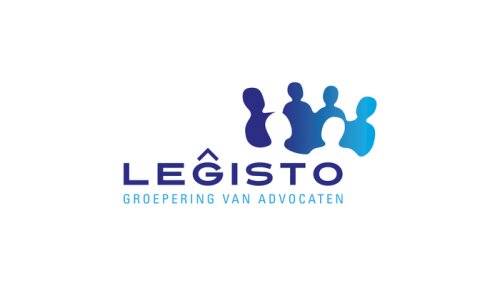Best Project Finance Lawyers in Mol
Share your needs with us, get contacted by law firms.
Free. Takes 2 min.
List of the best lawyers in Mol, Belgium
About Project Finance Law in Mol, Belgium
Project finance is a specialized area of law focused on funding long-term infrastructure and industrial projects using a non-recourse or limited recourse financial structure. In Mol, Belgium, this often involves the construction of energy plants, public infrastructure, or large real estate developments. The financing is typically secured by the future cash flow of the project rather than the balance sheets of the project sponsors. Legal frameworks in Mol ensure that such arrangements are compliant with both local regulations and broader Belgian and European Union laws. Given the region's focus on sustainability and innovation, Mol has seen an increase in public-private partnerships and green financing initiatives, further emphasizing the importance of competent legal advice in this area.
Why You May Need a Lawyer
Project finance transactions are complex and involve multiple parties including lenders, sponsors, contractors, and government authorities. Legal assistance is crucial in the following situations:
- Drafting and negotiating project finance agreements
- Structuring projects to optimize tax benefits and limit liabilities
- Navigating regulatory approvals and environmental compliance
- Managing risks related to zoning, permitting, and land use in Mol
- Resolving disputes between contractors, financiers, and stakeholders
- Ensuring proper due diligence and risk assessment
- Advising on public-private partnership frameworks and concession agreements
A specialized lawyer helps safeguard your interests from the earliest planning phases to the operation and management of the completed project.
Local Laws Overview
In Mol, project finance is governed by a combination of Belgian national law, Flemish regional regulations, and EU directives. Key aspects include:
- Public-Private Partnerships (PPPs): Flemish regulations encourage PPPs for infrastructure development, with legal guidelines on tendering, risk allocation, and contract management.
- Environmental and Zoning Laws: Environmental impact assessments and building permits are mandatory for most large projects, subject to both local Mol regulations and Flemish Region requirements.
- Securities and Guarantees: Local laws outline how project assets and future cash flows can be used as collateral for financing and introduce specific requirements for mortgage and pledge registration.
- Lender Protections: Belgian law offers tools for lenders to monitor projects and intervene in case of default, including step-in rights and direct agreements with contractors or authorities.
- Taxation: Tax incentives may be available for certain types of projects, particularly in renewable energy and sustainable infrastructure- legal advice is essential to maximize benefits.
- International Influence: EU procurement and competition rules may apply, especially for cross-border projects or those with European financing.
A local project finance lawyer can guide you through these overlapping legal frameworks to ensure full compliance.
Frequently Asked Questions
What is project finance and how does it differ from traditional financing?
Project finance is a method of funding where the project's cash flow and assets serve as collateral, rather than the sponsor’s personal or corporate wealth. This limits the financial exposure of sponsors and is suitable for large infrastructure or energy projects.
Why is Mol, Belgium an attractive location for project finance?
Mol offers a supportive regulatory environment for innovation, especially in technology, renewable energy, and research infrastructure. The government encourages investment through grants, PPPs, and favorable zoning laws.
What permits or approvals are required for a project in Mol?
Depending on the project scope, you will need several approvals such as environmental impact assessments, building permits, and possibly water management or heritage site clearances. Consulting the municipality and regional authorities is mandatory.
Can foreign investors participate in project finance transactions in Mol?
Yes, foreign investors are welcome. However, certain sectors may be subject to additional due diligence, and compliance with EU and Belgian regulations still applies.
How are risks typically allocated in project finance deals?
Risks are allocated among stakeholders depending on their ability to manage them, often detailed through contracts like EPC (Engineering, Procurement, and Construction) agreements, operating agreements, and insurance policies.
What role do banks and other lenders play?
Banks, institutional investors, and sometimes government entities provide funding. They require robust documentation, regular reporting, and mechanisms to step into project management if problems arise.
How do public-private partnerships work in this context?
PPPs involve collaboration between governmental bodies and private companies. The public sector grants rights or concessions to private firms, which bear part of the project risk in exchange for returns from project revenues.
Are there any incentives available for sustainable or energy projects?
Yes, both regional and federal authorities offer grants, tax breaks, and other incentives to promote investment in renewable energy, energy efficiency, and sustainable infrastructure.
What happens if the project cannot generate the expected revenue?
If the project fails to perform, lenders may exercise step-in rights, restructure the financing, or enforce security over project assets. Sponsors' exposure is typically limited to their original investment.
How do I find the right legal and financial advisors for my project?
Look for law firms and consultants with a track record in project finance, knowledge of local and EU law, and experience working with public authorities in Mol and the wider Flemish region.
Additional Resources
For further support and reliable information, consider contacting the following:
- Municipality of Mol - for local zoning, permits, and public tender information
- Flemish Agency for Innovation and Entrepreneurship (VLAIO) - for grants and incentives
- Belgian Financial Services and Markets Authority (FSMA) - for financial regulations and investor guidance
- Belgian Ministry of Economy - for investment facilitation and regional development data
- Association of Flemish Cities and Municipalities (VVSG) - for public project management advice
Next Steps
If you are considering or currently involved in a project finance initiative in Mol, Belgium, take these steps to ensure your project’s legal and financial health:
- Consult with a qualified local lawyer experienced in project finance and commercial law
- Arrange a preliminary feasibility assessment encompassing legal, financial, and regulatory checks
- Gather documentation on project scope, ownership, funding sources, and possible risks
- Research all necessary local and regional permissions early in the process
- Coordinate with other stakeholders such as banks, local authorities, and potential contractors
- Schedule a formal legal review before signing any contracts or funding agreements
Working with specialized legal professionals from the planning stage onward will reduce risks, ease compliance, and enhance your project’s chances of success.
Lawzana helps you find the best lawyers and law firms in Mol through a curated and pre-screened list of qualified legal professionals. Our platform offers rankings and detailed profiles of attorneys and law firms, allowing you to compare based on practice areas, including Project Finance, experience, and client feedback.
Each profile includes a description of the firm's areas of practice, client reviews, team members and partners, year of establishment, spoken languages, office locations, contact information, social media presence, and any published articles or resources. Most firms on our platform speak English and are experienced in both local and international legal matters.
Get a quote from top-rated law firms in Mol, Belgium — quickly, securely, and without unnecessary hassle.
Disclaimer:
The information provided on this page is for general informational purposes only and does not constitute legal advice. While we strive to ensure the accuracy and relevance of the content, legal information may change over time, and interpretations of the law can vary. You should always consult with a qualified legal professional for advice specific to your situation.
We disclaim all liability for actions taken or not taken based on the content of this page. If you believe any information is incorrect or outdated, please contact us, and we will review and update it where appropriate.









